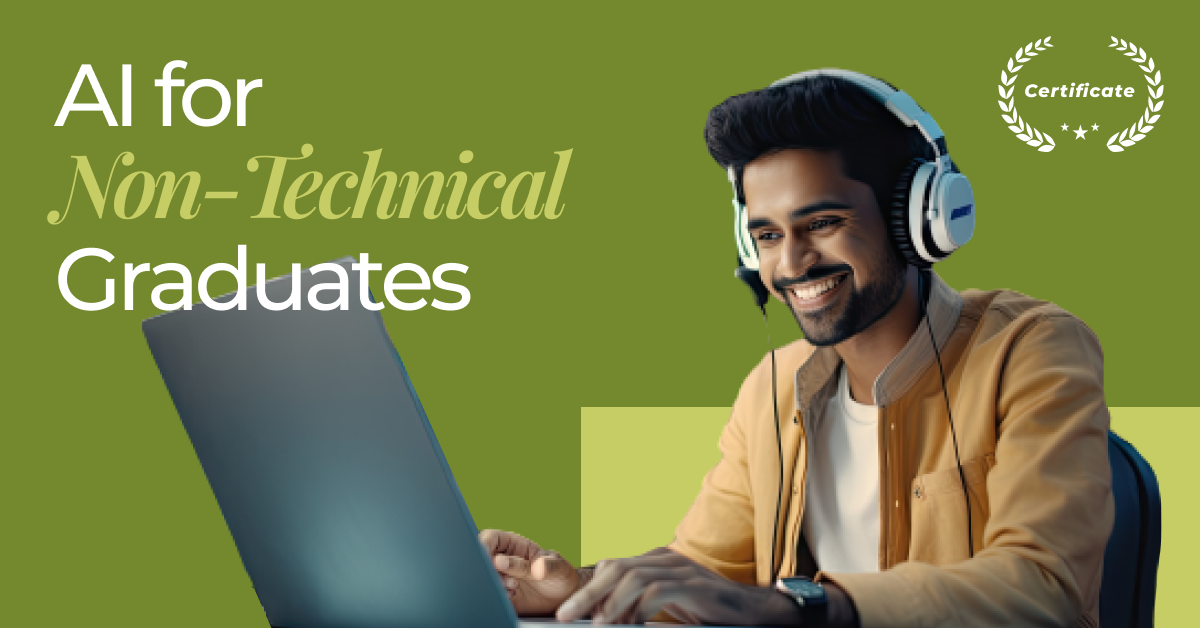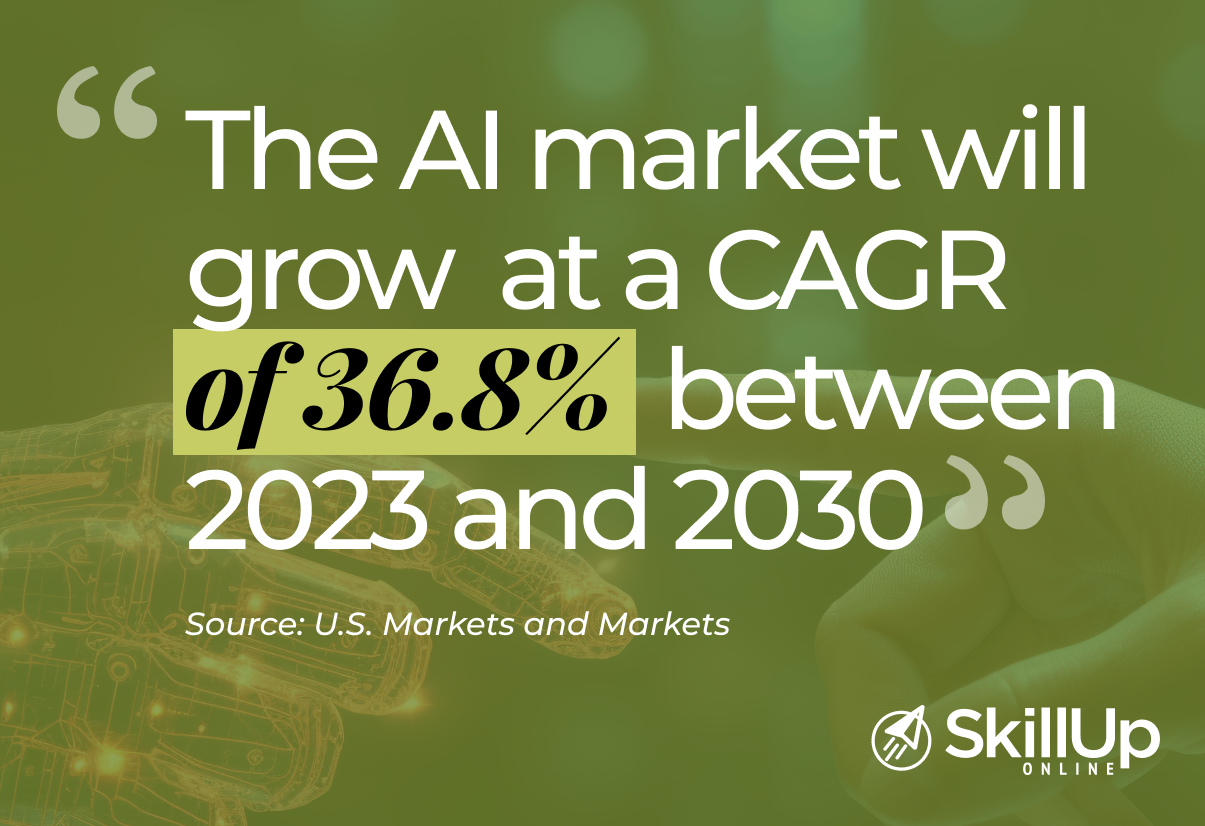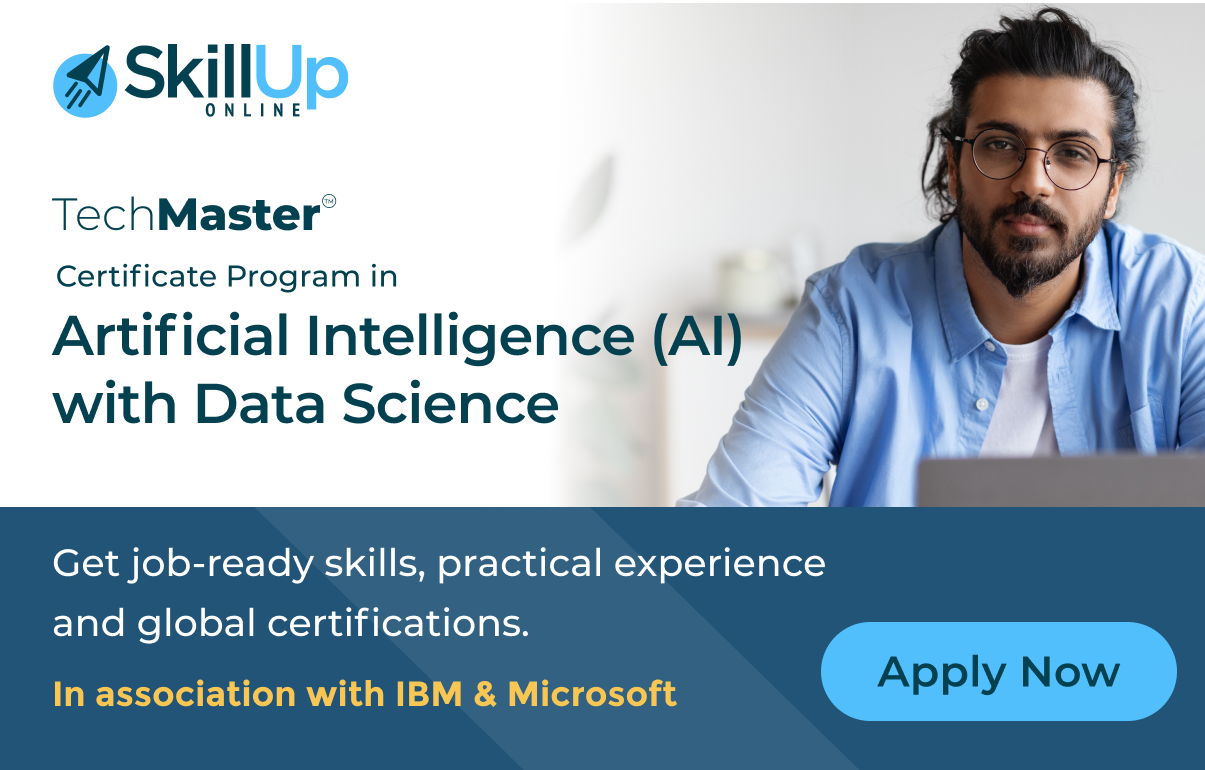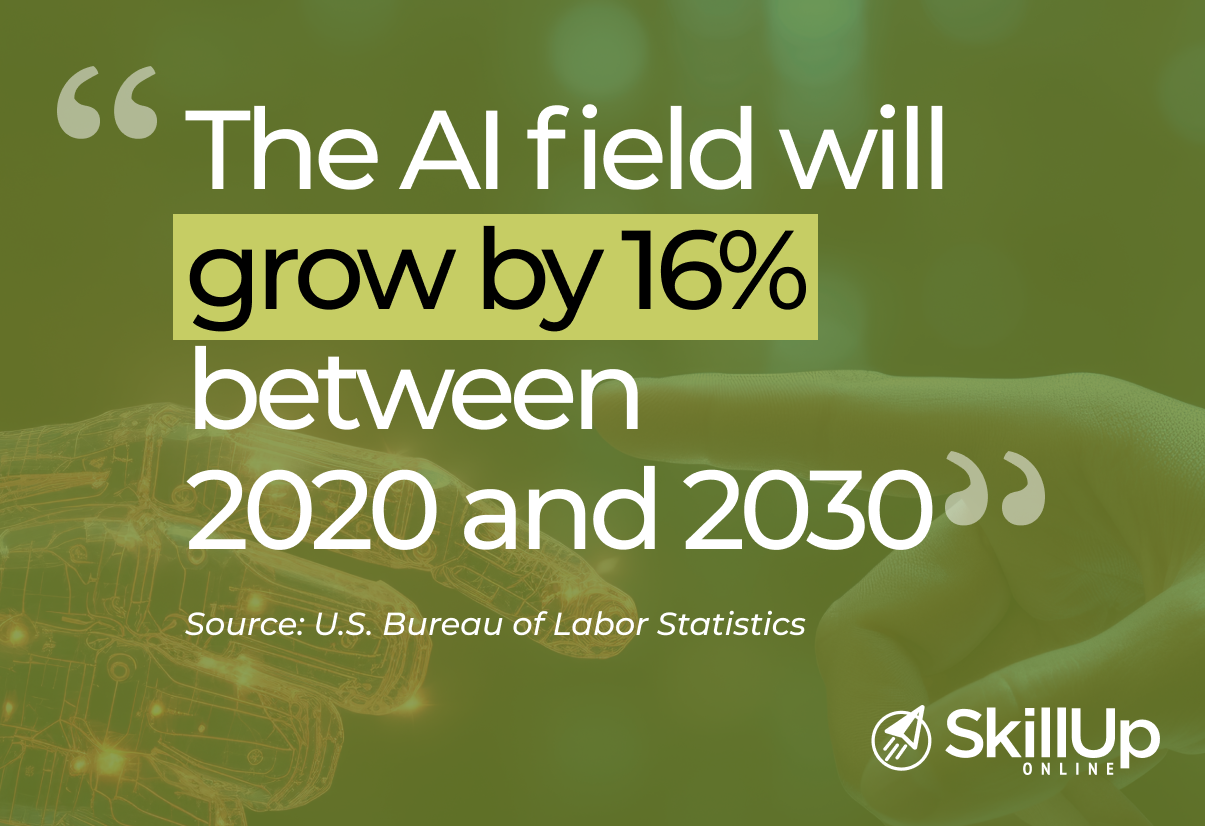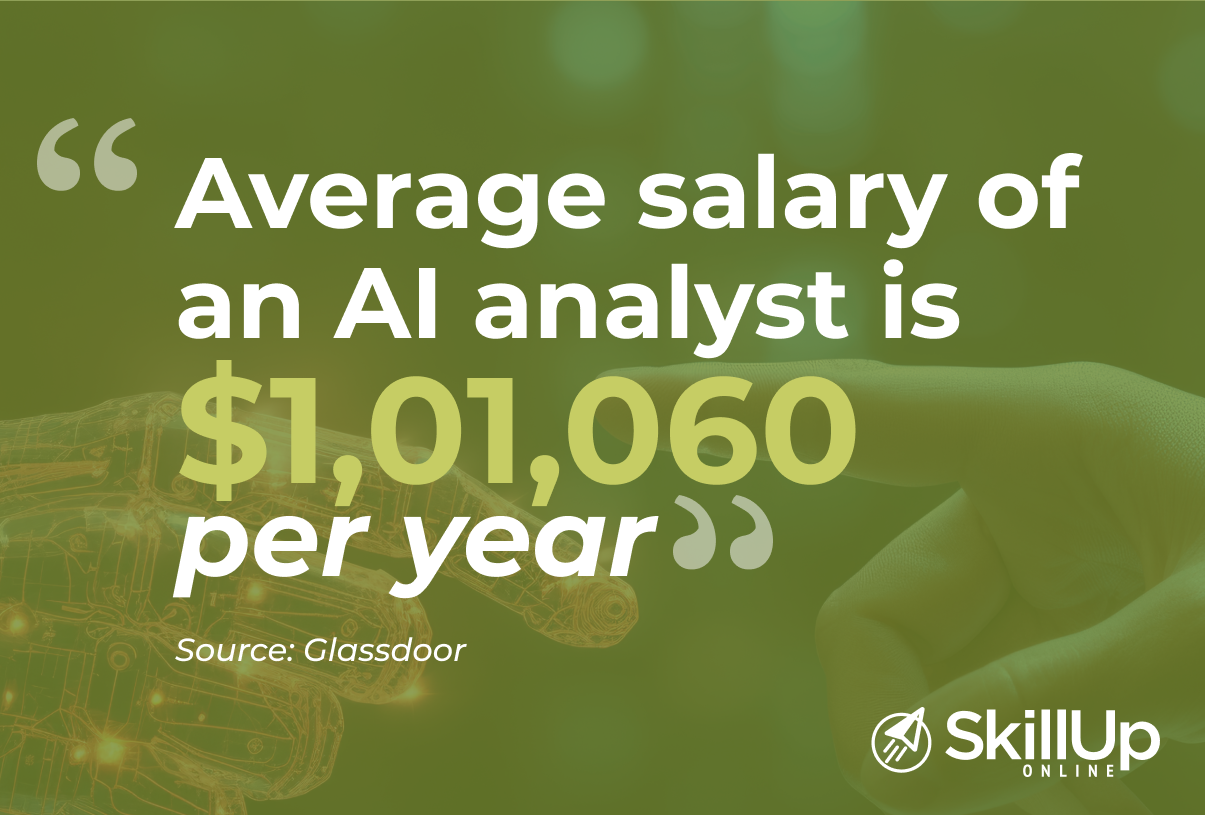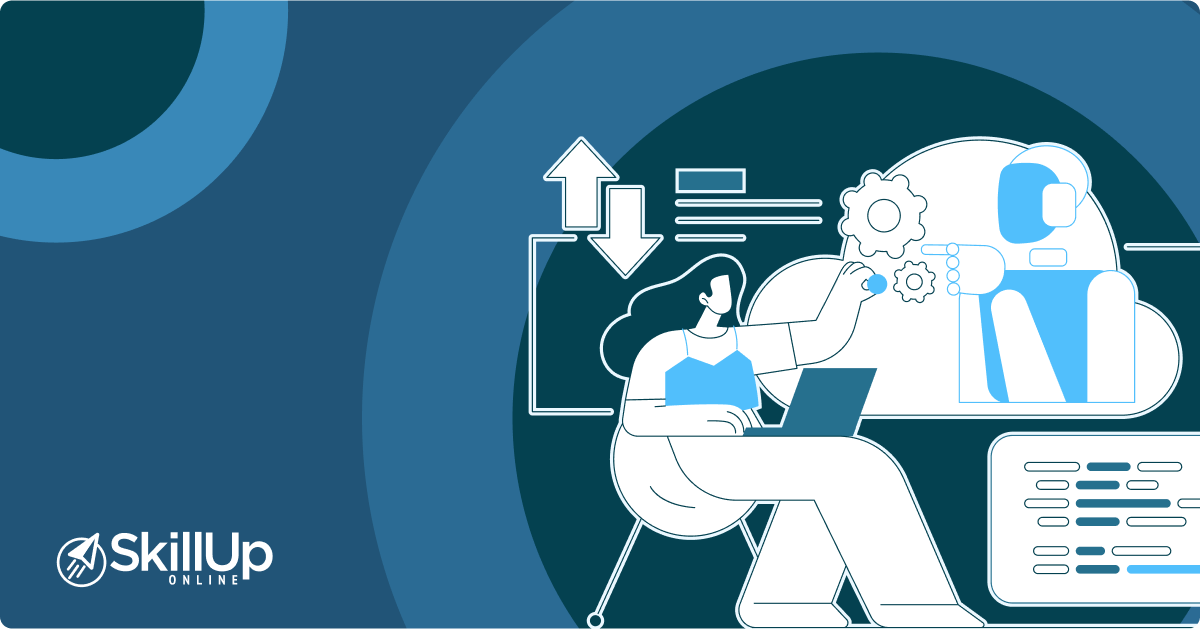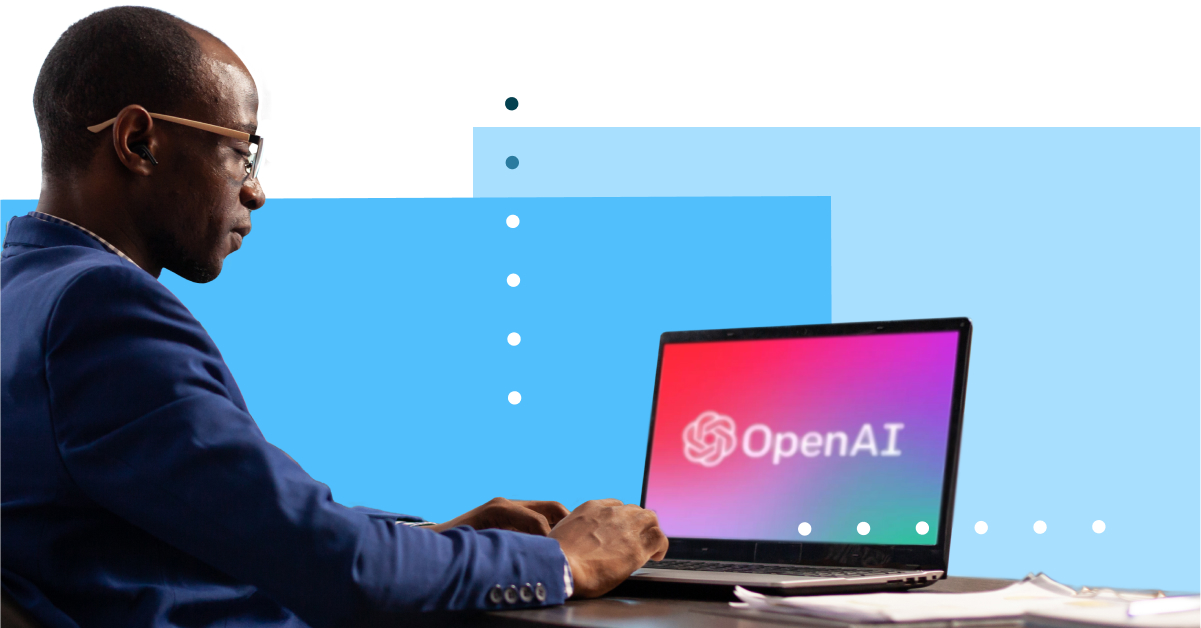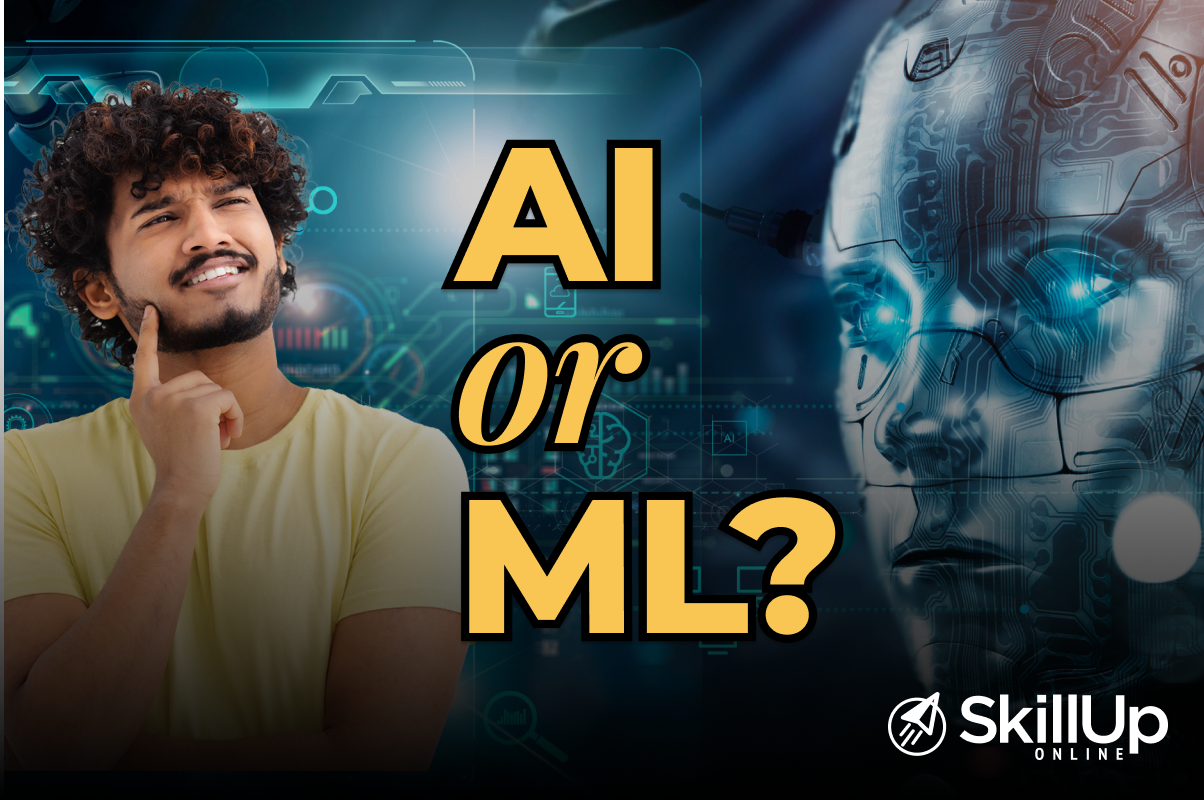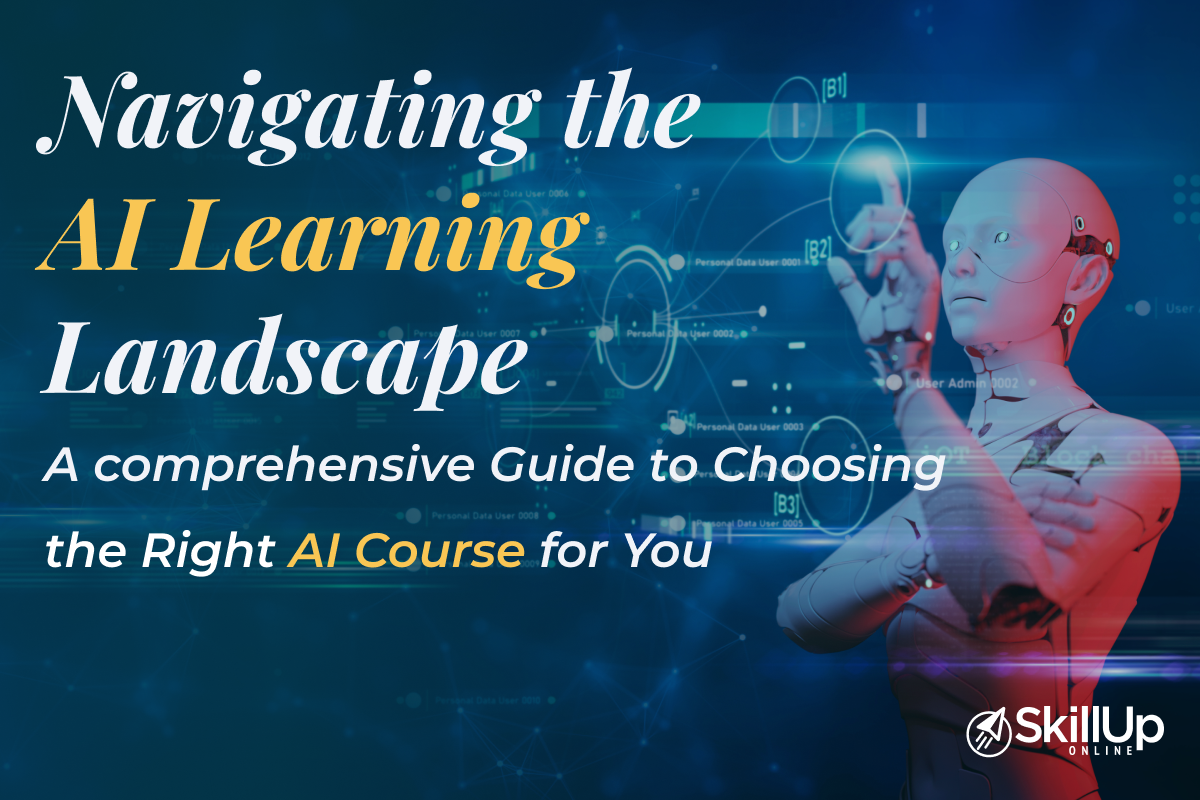If you’re reading this, chances are you’re among the many captivated by the ever-growing field of artificial intelligence (AI) but need help figuring out how to get into it, especially if your background isn’t steeped in technology.
According to a recent study by Markets and Markets, the AI market is expected to grow at a CAGR of 36.8% between 2023 and 2030. This means AI offers enormous growth potential, making a career in AI extremely promising.
So, whether you’re a student just starting or a seasoned professional contemplating a career pivot, this blog will help you navigate AI from a non-technical perspective and help you get started. How? Let’s explore!
Why Non-Technical Graduates Should Consider AI
You don’t need a computer science degree to realize AI’s transformative power. AI has made inroads into healthcare, education, logistics, and even the arts. For example, machine learning algorithms are now helping doctors make more accurate diagnoses, while AI-driven analytics are revolutionizing supply chain management. Because of its wide-ranging applications, AI offers a fertile ground for non-technical professionals to apply their domain-specific expertise. And with courses like IBM Applied AI Professional Certificate, you can get a solid grounding in how AI can be used in different settings.
Growing Demand for Diverse Skill Sets
Contrary to popular belief, building an AI system isn’t just about coding. It involves a deep understanding of the problem you’re trying to solve, designing the right models, and even considering the ethical implications of your work. Hence, there’s a growing demand for professionals with diverse perspectives and skill sets.
Whether you excel at problem-solving, possess strong communication skills, or have a knack for design thinking, there’s room for you in this expansive field. Our blog post on how to start your AI career offers more insights into the different competencies valued in the AI industry.
Challenges Faced by Non-Technical Graduates
Transitioning into AI can seem like scaling a steep mountain if you come from a non-technical background. The sheer volume of terms like machine learning, neural networks, and data analytics can be overwhelming. However, this shouldn’t deter you. Many programs like AI for Everyone: Master the Basics are crafted to help you grasp these concepts in a digestible manner.
Getting Industry Ready
Being knowledgeable is different from being industry ready. AI is a fast-evolving field, and staying updated can be a herculean task. You need more than just textbook knowledge to excel and make a seamless transition into the AI industry. You need practical experience and the ability to apply your skills to real-world challenges. Look for courses incorporating real-world case studies and hands-on projects for a smooth transition. Our TechMaster Certificate Program in Data Science & Artificial Intelligence does just that, empowering you to effectively apply your knowledge in real-world scenarios.
Overcoming Stereotypes
Let’s address the elephant in the room—stereotypes. The perception that you must be a coder or a math whiz to thrive in AI can be limiting. While technical skills are undoubtedly valuable, they’re not the only ticket to success. Soft skills like effective communication and creative problem-solving are equally crucial.
Essential Prerequisites
While you don’t need a Ph.D. in mathematics to work in AI, a basic understanding of statistics, linear algebra, and calculus will go a long way. This foundational knowledge can help you grasp AI algorithms and methodologies more effectively. Programs like Foundations of Artificial Intelligence and Machine Learning can help you cover these basics while providing a broader understanding of AI concepts.
Basic Coding Skills
Coding is the bridge that takes you from theoretical knowledge to practical application. Languages like Python are often recommended for their readability and extensive libraries. If you’re starting, consider courses focused on practical projects like Python for AI and Development Project to gain hands-on experience.
Domain-Specific Knowledge
One of the beauties of AI is its applicability across various industries. If you’re a healthcare professional, your domain-specific knowledge could be invaluable when working on AI projects related to medical diagnostics. Likewise, a background in finance could help you excel in AI-driven financial analytics. Check out our blog, Should I Choose a Career in AI or Data Science? to help you decide where your existing skills could be most effectively applied in the AI landscape.
Types of AI Courses for Non-Technical Learners
Introductory Courses
Introductory courses can be your best friends if you’re dipping your toes into AI. Courses such as AI for Everyone: Master the Basics, provide a broad overview of AI’s key concepts without overwhelming you with technical jargon. Learning Python and its use in AI is also important; courses like Python for AI and AI Development Project will help you understand the intricacies.
Domain-Specific AI Courses
AI is not a one-size-fits-all field. It has diverse applications across industries like healthcare, finance, and retail. For those already working in a particular sector, domain-specific courses offer specialized training. If you’re into healthcare, you may find value in courses focusing on AI applications in medical diagnostics. Our IBM Applied AI Professional Certificate is one such program that offers domain-centric training.
Skill-Focused Courses
While general understanding is great, you may also want to specialize in specific AI skills like machine learning or natural language processing. Skill-focused courses like Deep Learning with TensorFlow provide deeper dives into specific areas, empowering you with practical skills that are highly sought after in the industry.
For more insights on the types of AI courses available and how to choose the best fit for you, read our blog, How Do I Get Started in AI?
Features to Look for in a Course
Mentor Support
AI is a complex field that may pose challenging questions as you learn. A course that offers mentor support can provide the additional guidance you need. Courses like our AI 102: Designing and Implementing a Microsoft Azure AI Solution provide mentor-led sessions, helping you decode complex AI problems.
Real-world Case Studies
To understand how AI operates in the real world, look for courses that offer real-world case studies. These will give you insights into how AI solutions are implemented and optimized in various industries. Check out our AI 900: Microsoft Azure AI Fundamentals course, which includes case studies, making the learning experience more relatable and practical.
Exam Preparation
If certification is part of your career goals, it’s essential to choose a course that not only imparts knowledge but also prepares you thoroughly for certification exams. Look for courses that offer comprehensive exam preparation materials, practice tests, and mock exams.
Capstone Project
A capstone project is the culmination of your learning journey, where you apply all the skills and knowledge you’ve acquired to solve a real-world problem or create a substantial project. Look for courses that offer a capstone project as it demonstrates your practical proficiency. You can opt for the TechMaster Certificate Program in Data Science & Artificial Intelligence, as it includes a comprehensive capstone project that allows you to showcase your skills to potential employers and peers.
Placement Service
Landing your dream job in the AI industry can be a daunting task, but some courses go the extra mile by offering placement services. These services can help you with job search strategies, resume building, and interview preparation and even connect you with industry partners. When considering a course, inquire about their placement assistance to ensure a smoother transition from learning to work.
Maximizing Learning Outcomes
A thoughtful study plan is crucial for mastering AI. Consider dedicating specific hours each day or week to your course. As you deepen your AI expertise, networking can unlock more opportunities. Many online platforms offer community forums where you can interact with fellow students and industry professionals.
In a continually evolving field, adopting a lifelong learning habit is essential. Blogs, podcasts, and ongoing courses can keep you updated. For instance, our blog, How Do I Get Started in AI?, provides foundational advice for those eager to plunge into the AI universe.
Building Your Portfolio
Your portfolio shouldn’t just be a compilation of technical projects but also highlight your unique non-technical skills. For example, if you have an eye for design, you must include that in your portfolio, as it could be valuable for AI projects in the creative industry.
Employers are not just looking for technical prowess; they also value soft skills like communication and teamwork. Projects that demonstrate these skills, collaborating with others, make your portfolio stand out.
Career Paths and Opportunities
Non-technical roles in AI are diverse, ranging from project managers to AI ethicists. The great news is that you don’t have to be a coding wizard to contribute meaningfully to AI projects. Courses like our AI Applications with Watson can help you find a niche that aligns with your interests and skills.
Salaries and Job Market Statistics
According to the U.S. Bureau of Labor Statistics, job opportunities in the AI field are expected to grow by 16% between 2020 and 2030. While technical roles often grab headlines with high salaries, non-technical roles are also well-compensated. In fact, according to Glassdoor, the average salary of an artificial intelligence analyst is a whopping $1,01,060 per year. Depending on your educational background, you can explore roles such as AI Product Manager, AI Analyst, or even an AI UI/UX Designer.
Entering the AI industry as a non-technical graduate doesn’t mean limiting your career options or earning potential. With the right courses, networking, and continuous learning, the sky is the limit. For more in-depth discussions, read our blog IT and the AI Revolution: What’s Next for Tech Professionals?
Final Word
The horizon of AI is continually expanding, and so are the opportunities for non-technical graduates. As AI permeates every sector, from healthcare to marketing, the demand for a varied skill set will likely increase.
Remember, embarking on a career in AI is achievable and incredibly rewarding, even if you do not have a technology background! With the right training and a willingness to learn, you, too, can be an asset in AI.
If you would like to know more about how you can build skills in AI, then contact our Learner Support Team at [email protected]. They will be happy to guide you on your next steps.
SkillUp Online
